Georges Brassens: La Religieuse
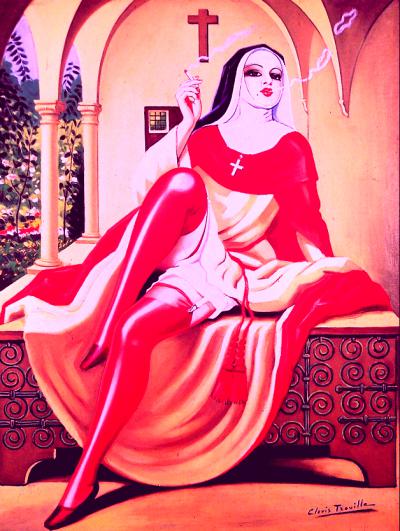
Tous les cœurs se rallient à sa blanche cornette,
(Continues)
(Continues)
Contributed by Marco Valdo M.I. 2015/11/13 - 19:37
Se scoppia la guerra...
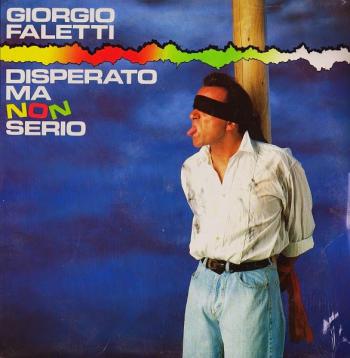
[1991]
I crediti del brano sono a Piana (?) e Giorgio Faletti (1950-2014), celebre comico, artista e scrittore astigiano, prematuramente scomparso lo scorso anno.
Nell’album “Disperato ma non serio”
Testo, musica ed arrangiamento davvero claudicanti, ma in ogni caso una CCG doc.
Certamente ispirata all’aforisma di Carl Sandburg “Sometime they'll give a war and nobody will come” (“The People, Yes”, 1936).
Si veda al proposito Suppose They Give a War della The West Coast Pop Art Experimental Band.
I crediti del brano sono a Piana (?) e Giorgio Faletti (1950-2014), celebre comico, artista e scrittore astigiano, prematuramente scomparso lo scorso anno.
Nell’album “Disperato ma non serio”
Testo, musica ed arrangiamento davvero claudicanti, ma in ogni caso una CCG doc.
Certamente ispirata all’aforisma di Carl Sandburg “Sometime they'll give a war and nobody will come” (“The People, Yes”, 1936).
Si veda al proposito Suppose They Give a War della The West Coast Pop Art Experimental Band.
Eravamo solo noi
(Continues)
(Continues)
Contributed by Bernart Bartleby 2015/11/13 - 13:28
Song Itineraries:
Deserters
Die Wahrheit träumt in Schatten

[1991]
Parole e musica di Linard Bardill
Nel disco intitolato “Strampedemi - Lieder Gegen Den Krieg”
“Inspiriert zu diesem Lied wurde ich durch einen Artikel des englischen Aussenministers Douglas Hurt, in welchem er erklärte, dass die Amerikaner und ihre Alliierten die Extra-Meile, die man für den Frieden mehr gehen müsse, gegangen seien. Ich bin überzeugt davon, dass man vor allem Schritte für den Krieg gemacht hat und die Wege für den Frieden noch längst nicht alle gegangen worden sind. Dass die Lüge im Liede in der Wirklichkeitsform, die Wahrheit (so wie ich sie sehe) in der Möglichkeitsform erscheint, verdanke ich Franz Kafka.” (Linard Bardill)
Credo si tratti – e se sbalio mi corigerete - di una canzone dedicata alla retorica e alle menzogne del Potere, che anche quando parla di pace in realtà prepara la guerra. Un esempio lampante per tutti: le cosiddette “operazioni di peacekeeping”…... (Continues)
Parole e musica di Linard Bardill
Nel disco intitolato “Strampedemi - Lieder Gegen Den Krieg”
“Inspiriert zu diesem Lied wurde ich durch einen Artikel des englischen Aussenministers Douglas Hurt, in welchem er erklärte, dass die Amerikaner und ihre Alliierten die Extra-Meile, die man für den Frieden mehr gehen müsse, gegangen seien. Ich bin überzeugt davon, dass man vor allem Schritte für den Krieg gemacht hat und die Wege für den Frieden noch längst nicht alle gegangen worden sind. Dass die Lüge im Liede in der Wirklichkeitsform, die Wahrheit (so wie ich sie sehe) in der Möglichkeitsform erscheint, verdanke ich Franz Kafka.” (Linard Bardill)
Credo si tratti – e se sbalio mi corigerete - di una canzone dedicata alla retorica e alle menzogne del Potere, che anche quando parla di pace in realtà prepara la guerra. Un esempio lampante per tutti: le cosiddette “operazioni di peacekeeping”…... (Continues)
Und sie werden sagen: «Es hat jetzt keinen Sinn
(Continues)
(Continues)
Contributed by Bernart Bartleby 2015/11/13 - 12:51
Ma race humaine

Plusieurs années que je voulais écrire cette chanson, sans m'y atteler, de crainte de tomber dans la démagogie ou les poncifs. Mais là il ne s'agit plus ni de gauche ni de droite, mais de verticalité, d'être un homme debout qui regarde, désarmé, le monde partir en vrille. Cette chanson est hélas d'une actualité brûlante. Partagez-la (elle est gratuite) ça me donnera l'impression de ne pas rester les bras ballants. C'est le moins que je puisse faire. Portez-vous bien haut.
Pascal Rinaldi
Pascal Rinaldi
Bien sûr c'est si facile on est si bien chez soi
(Continues)
(Continues)
2015/11/13 - 09:00
La strega della guerra
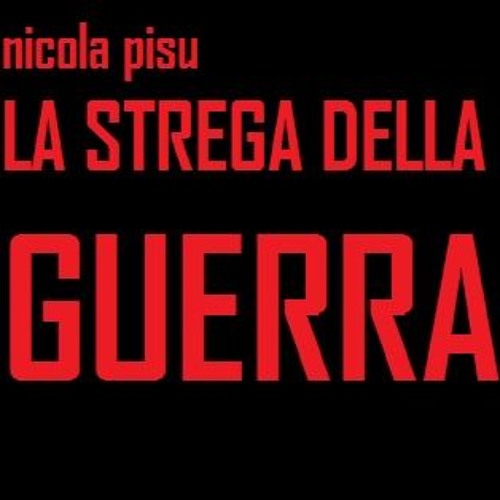
[2015]
Testo e musica: Nicola Pisu
Nicola Pisu (voce, chitarra acustica)
Roberto Corda (batteria)
Andrea Cappai (basso, chitarra classica)
Registrazione, missaggio e mastering: Roberto Corda - Serrenti
La canzone si ispira liberamente a “Sette schegge di luna” di Gian Carlo Tusceri [Paolo Sorba Editore, 1992] e tenta di esprimere un concetto elementare: aldilà della retorica patriottica, la guerra è quello strumento che, dati alla mano, produce solo morte e distruzione.
Testo e musica: Nicola Pisu
Nicola Pisu (voce, chitarra acustica)
Roberto Corda (batteria)
Andrea Cappai (basso, chitarra classica)
Registrazione, missaggio e mastering: Roberto Corda - Serrenti
La canzone si ispira liberamente a “Sette schegge di luna” di Gian Carlo Tusceri [Paolo Sorba Editore, 1992] e tenta di esprimere un concetto elementare: aldilà della retorica patriottica, la guerra è quello strumento che, dati alla mano, produce solo morte e distruzione.
Uomini morti portati in trionfo
(Continues)
(Continues)
Contributed by Nicola Pisu 2015/11/13 - 08:02
L’Île Saint Louis

[1948]
Texte et Musique :
Francis Claude– Léo Ferré (1948)
Voici une chanson éminemment poétique, dont on pourrait se demander ce qu'elle vient faire dans les Chansons contre la Guerre. On pourrait faire valoir que c'est une chanson d'émigration et d'une émigration ratée, puisqu'en finale, elle revient à son point de départ. Mais le principal argument n'est pas celui-là.
Quel est -il dès lors, dit Lucien l'âne un peu interloqué ?
Mais, ajoute Marco Valdo M.I., tout simplement celui qui veut que les meilleures chansons contre la guerre sont des chansons qui n'en parlent pas, ce sont des chansons de paix. Cependant, pour revenir à l'argument premier, c'est curieux, mais il me semble que le destin de pas mal des émigrés, réfugiés, personnes déplacées, fuyards contemporains est ou sera précisément celui-là de fuir un endroit avec dans la tête une « île au trésor » qui s'est noyée depuis... (Continues)
Texte et Musique :
Francis Claude– Léo Ferré (1948)
Voici une chanson éminemment poétique, dont on pourrait se demander ce qu'elle vient faire dans les Chansons contre la Guerre. On pourrait faire valoir que c'est une chanson d'émigration et d'une émigration ratée, puisqu'en finale, elle revient à son point de départ. Mais le principal argument n'est pas celui-là.
Quel est -il dès lors, dit Lucien l'âne un peu interloqué ?
Mais, ajoute Marco Valdo M.I., tout simplement celui qui veut que les meilleures chansons contre la guerre sont des chansons qui n'en parlent pas, ce sont des chansons de paix. Cependant, pour revenir à l'argument premier, c'est curieux, mais il me semble que le destin de pas mal des émigrés, réfugiés, personnes déplacées, fuyards contemporains est ou sera précisément celui-là de fuir un endroit avec dans la tête une « île au trésor » qui s'est noyée depuis... (Continues)
L’île Saint Louis en ayant marre
(Continues)
(Continues)
Contributed by Marco Valdo M.I. 2015/11/12 - 18:40
Mon Vieux Léo

Mon Vieux Léo
Chanson française – Mon Vieux Léo – Marco Valdo M.I. – 2008-2015
Ah, Lucien l’âne mon ami, c’était il y a déjà quelques années… Je venais de découvrir les Chansons contre La Guerre… Autrement dit, c’était en 2008 et c’était une de mes premières tentatives, disons, d’écriture de chanson. J’avais eu l’idée de faire une chanson, une parodie déjà. Et une parodie de Georges Brassens et je te le dis tout net, je n’avais pas pu aboutir. J’avais donc laissé la chose en plan.
Et alors, pourquoi me racontes-tu ça ? J’imagine que tu as dû retrouver cette chanson inachevée et sans doute, as-tu essayé de la mener à son terme…
C’est exactement ça et comme tu le penses bien, vu qu’on en parle ici, j’ai dû réussir à la terminer. Mais je ne dirai pas combien de fois je l’ai reprise – une vieille chaussette ne l’a pas été autant, modifiée, recommencée, réécrite… Une montagne de papier... (Continues)
Chanson française – Mon Vieux Léo – Marco Valdo M.I. – 2008-2015
Ah, Lucien l’âne mon ami, c’était il y a déjà quelques années… Je venais de découvrir les Chansons contre La Guerre… Autrement dit, c’était en 2008 et c’était une de mes premières tentatives, disons, d’écriture de chanson. J’avais eu l’idée de faire une chanson, une parodie déjà. Et une parodie de Georges Brassens et je te le dis tout net, je n’avais pas pu aboutir. J’avais donc laissé la chose en plan.
Et alors, pourquoi me racontes-tu ça ? J’imagine que tu as dû retrouver cette chanson inachevée et sans doute, as-tu essayé de la mener à son terme…
C’est exactement ça et comme tu le penses bien, vu qu’on en parle ici, j’ai dû réussir à la terminer. Mais je ne dirai pas combien de fois je l’ai reprise – une vieille chaussette ne l’a pas été autant, modifiée, recommencée, réécrite… Une montagne de papier... (Continues)
Ça fait maintenant
(Continues)
(Continues)
Contributed by Marco Valdo M.I. 2015/11/12 - 16:41
La Madonna della FIAT (Profezia del riflusso)
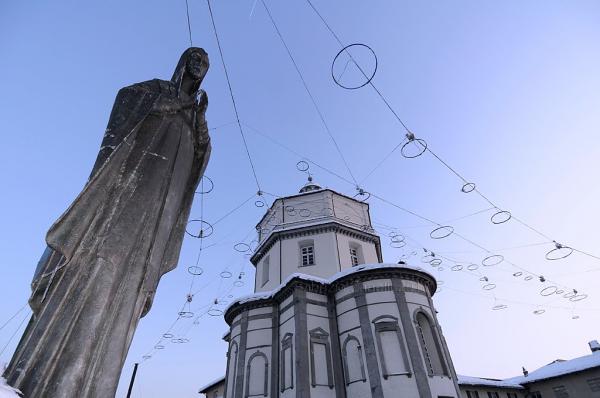
[1960]
Parole di Michele L. Straniero
Musica di Fausto Amodei
Arrangiamento di Anton Virgilio Savona
E’ la canzone che dà il titolo all’album.
Purtroppo non credo che il testo sia completo, ma non mi è riuscito di trovare un video o un mp3 per poterlo sistemare all’ascolto…
Nel 1960 la direzione della FIAT promosse il primo pellegrinaggio dei suoi lavoratori a Lourdes. All’epoca l’azienda ancora scandiva il tempo dei torinesi, quello lavorativo come pure quello libero… Poi, per celebrare l’evento, offrì il denaro, il bronzo e il lavoro per installare una statua della Madonna - che chiamarono " Madonna dei lavoratori" - in un punto strategico della collina torinese, sulla piazzetta davanti al Monte dei Cappuccini. Al fianco della statua, un pezzo della cancellata che custodiva l’ingresso alla grotta delle apparizioni, donata dal vescovo di Lourdes…
Quei soliti provocatori del Cantacronache... (Continues)
Parole di Michele L. Straniero
Musica di Fausto Amodei
Arrangiamento di Anton Virgilio Savona
E’ la canzone che dà il titolo all’album.
Purtroppo non credo che il testo sia completo, ma non mi è riuscito di trovare un video o un mp3 per poterlo sistemare all’ascolto…
Nel 1960 la direzione della FIAT promosse il primo pellegrinaggio dei suoi lavoratori a Lourdes. All’epoca l’azienda ancora scandiva il tempo dei torinesi, quello lavorativo come pure quello libero… Poi, per celebrare l’evento, offrì il denaro, il bronzo e il lavoro per installare una statua della Madonna - che chiamarono " Madonna dei lavoratori" - in un punto strategico della collina torinese, sulla piazzetta davanti al Monte dei Cappuccini. Al fianco della statua, un pezzo della cancellata che custodiva l’ingresso alla grotta delle apparizioni, donata dal vescovo di Lourdes…
Quei soliti provocatori del Cantacronache... (Continues)
E se non vi basta la paga, operai,
(Continues)
(Continues)
Contributed by Bernart Bartleby 2015/11/12 - 15:11
Bob
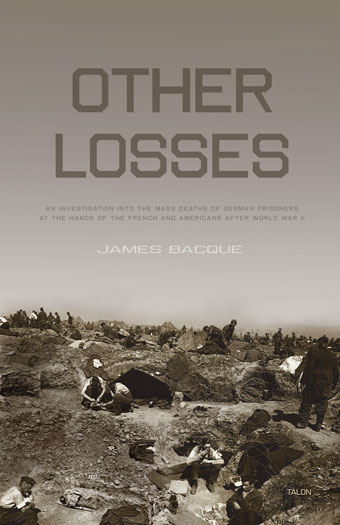
[1991]
Parole e musica di Linard Bardill
Nel disco intitolato “Strampedemi - Lieder Gegen Den Krieg”
“Der Text des Kehrreims dieses Liedes stammt aus einem Song des Strassenmusikers und Songwriters Bob Gault, den ich sehr mag. Bob ist Amerikaner und singt seit Jahren im Sommer in den Strassen Luzerns, Churs und Berns. Ich sehe ihn immer mit geschlossenen Augen, wie er mitten im Rummel, völlig weltvergessen, seine wunderschönen Songs singt, ohne Blick auf eventuelles Publikum oder eingegangene Münzen. Manchmal kann ich diese innere Ruhe, die ich mir nur aus einer tiefen Begeisterung für den Inhalt und die Gestalt seiner Lieder erklären kann, kaum ertragen.
Zum Verbrechen an den deutschen Kriegsgefangenen siehe James Baques: «Der geplante Tod», Ullstein Verlag.” (Linard Bardill)
Canzone dedicata all’amico Bob Gault, un musicista di strada americano che Bardill conobbe a Lucerna. Una... (Continues)
Parole e musica di Linard Bardill
Nel disco intitolato “Strampedemi - Lieder Gegen Den Krieg”
“Der Text des Kehrreims dieses Liedes stammt aus einem Song des Strassenmusikers und Songwriters Bob Gault, den ich sehr mag. Bob ist Amerikaner und singt seit Jahren im Sommer in den Strassen Luzerns, Churs und Berns. Ich sehe ihn immer mit geschlossenen Augen, wie er mitten im Rummel, völlig weltvergessen, seine wunderschönen Songs singt, ohne Blick auf eventuelles Publikum oder eingegangene Münzen. Manchmal kann ich diese innere Ruhe, die ich mir nur aus einer tiefen Begeisterung für den Inhalt und die Gestalt seiner Lieder erklären kann, kaum ertragen.
Zum Verbrechen an den deutschen Kriegsgefangenen siehe James Baques: «Der geplante Tod», Ullstein Verlag.” (Linard Bardill)
Canzone dedicata all’amico Bob Gault, un musicista di strada americano che Bardill conobbe a Lucerna. Una... (Continues)
Gut Bob
(Continues)
(Continues)
Contributed by Bernart Bartleby 2015/11/12 - 09:27
Tü meis figl grond
[1988]
Parole e musica: Linard Bardill
Pleds e musica: Linard Bardill
Worte und Musik: Linard Bardill
Album: Strampedemi, Lieder gegen den Krieg [1991]
"Hanns Dieter Hüsch hat ein Gedicht geschrieben, das mit «Wenn die Krieger kommen» beginnt. Nun hatte mein vierjähriger Sohn eine panische Angst vor den Soldaten, die durch unser im Sommer und Winter von Touristen, in den Zwischensaisons vom Schweizer Militär heimgesuchten Dörfchen Parsonz marschierten. Ich schrieb ihm, ausgehend von Hüschs Satz, dieses Lied und sang es ihm unzählige Male vor. Es hat ihm die Angst genommen. Sowie ich das Leben kenne, wird aus ihm wohl ein Oberst werden." - Linard Bardill
Racconta Linard Bardill nel libretto dell'album di canzoni contro la guerra Strampedemi, pubblicato nel 1991: ""Hanns Dieter Hüsch ha scritto una poesia, che comincia così: 'Quando arrivano i soldati'. Ora, mio figlio di quattro anni... (Continues)
Parole e musica: Linard Bardill
Pleds e musica: Linard Bardill
Worte und Musik: Linard Bardill
Album: Strampedemi, Lieder gegen den Krieg [1991]
"Hanns Dieter Hüsch hat ein Gedicht geschrieben, das mit «Wenn die Krieger kommen» beginnt. Nun hatte mein vierjähriger Sohn eine panische Angst vor den Soldaten, die durch unser im Sommer und Winter von Touristen, in den Zwischensaisons vom Schweizer Militär heimgesuchten Dörfchen Parsonz marschierten. Ich schrieb ihm, ausgehend von Hüschs Satz, dieses Lied und sang es ihm unzählige Male vor. Es hat ihm die Angst genommen. Sowie ich das Leben kenne, wird aus ihm wohl ein Oberst werden." - Linard Bardill
Racconta Linard Bardill nel libretto dell'album di canzoni contro la guerra Strampedemi, pubblicato nel 1991: ""Hanns Dieter Hüsch ha scritto una poesia, che comincia così: 'Quando arrivano i soldati'. Ora, mio figlio di quattro anni... (Continues)
Tü meis figl grond, cur cha’ls guerriers
(Continues)
(Continues)
Contributed by Riccardo Venturi 2015/11/11 - 21:22
Ein Hoch den Obern! (Pamphlet zum Tode Breschnews)
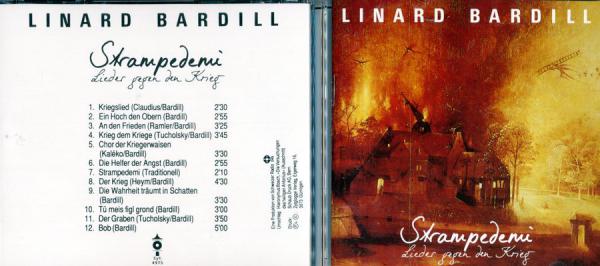
[1982]
Parole e musica di Linard Bardill
Nel disco intitolato “Strampedemi - Lieder Gegen Den Krieg”, pubblicato nel 1991
Libello in morte del Leonid Il'ič Brežnev (1906-1982), possibilmente l’ultimo esponente del brutale totalitarismo sovietico… Leggo su it.wikipedia, tra l’altro, un aspetto curioso della sua biografia: Brežnev è stato un appassionato collezionista di automobili di grossa cilindrata, che tutti i potenti della Terra all’epoca facevano a gara a regalargli… Arrivò a possedere una cinquantina di bolidi… Pare che un giorno la madre di Brežnev, alla vista di tale collezione, avesse esclamato: “È tutto molto bello, figlio mio, ma se i bolscevichi tornassero?”…
"Das Lied habe ich zum Tode Breschnews geschrieben. Stalin hatte weit über 40 Millionen Menschen umbringen lassen, im Gulag schmachteten nach seinem Tode Hunderttausende weiter. Auf der Folie der blutigen Geschichte
Russlands... (Continues)
Parole e musica di Linard Bardill
Nel disco intitolato “Strampedemi - Lieder Gegen Den Krieg”, pubblicato nel 1991
Libello in morte del Leonid Il'ič Brežnev (1906-1982), possibilmente l’ultimo esponente del brutale totalitarismo sovietico… Leggo su it.wikipedia, tra l’altro, un aspetto curioso della sua biografia: Brežnev è stato un appassionato collezionista di automobili di grossa cilindrata, che tutti i potenti della Terra all’epoca facevano a gara a regalargli… Arrivò a possedere una cinquantina di bolidi… Pare che un giorno la madre di Brežnev, alla vista di tale collezione, avesse esclamato: “È tutto molto bello, figlio mio, ma se i bolscevichi tornassero?”…
"Das Lied habe ich zum Tode Breschnews geschrieben. Stalin hatte weit über 40 Millionen Menschen umbringen lassen, im Gulag schmachteten nach seinem Tode Hunderttausende weiter. Auf der Folie der blutigen Geschichte
Russlands... (Continues)
Die Herren oben lösen sich ab
(Continues)
(Continues)
Contributed by Bernart Bartleby 2015/11/11 - 15:52
Song Itineraries:
The Gulag Archipelago
The Torture Never Stops

1976
Zoot Allures
Parlando di Frank Zappa, come sempre, bisognerebbe prima bersi qualcosa di forte e poi procedere. Ma poiché sto scrivendo queste brevi cose circa alle dieci del mattino, forse la cosa non è tanto indicata; cominciamo quindi con qualche nota tecnica su questo pezzo del 1976, tratto dall'album Zoot Allures (poiché gli italiani fanno spesso i super-rockettari annisettànta senza sapere praticamente mai cosa significano veramente i titoli degli album che conoscono così bene, diciamo che significa qualcosa come: "le attrattive di uno che veste con giacca lunga e pantaloni a tubo" -la cosiddetta zoot suit; si potrebbe rendere meglio con "com'è figo uno con la giacca lunga e i pantaloni a tubo"). Altre versioni della canzone appaiono negli album Zappa in New York, Thing-Fish, You Can't Do That on Stage Anymore, Vol. 1, You Can't Do That on Stage Anymore, Vol. 4, The Best Band... (Continues)
Zoot Allures
Parlando di Frank Zappa, come sempre, bisognerebbe prima bersi qualcosa di forte e poi procedere. Ma poiché sto scrivendo queste brevi cose circa alle dieci del mattino, forse la cosa non è tanto indicata; cominciamo quindi con qualche nota tecnica su questo pezzo del 1976, tratto dall'album Zoot Allures (poiché gli italiani fanno spesso i super-rockettari annisettànta senza sapere praticamente mai cosa significano veramente i titoli degli album che conoscono così bene, diciamo che significa qualcosa come: "le attrattive di uno che veste con giacca lunga e pantaloni a tubo" -la cosiddetta zoot suit; si potrebbe rendere meglio con "com'è figo uno con la giacca lunga e i pantaloni a tubo"). Altre versioni della canzone appaiono negli album Zappa in New York, Thing-Fish, You Can't Do That on Stage Anymore, Vol. 1, You Can't Do That on Stage Anymore, Vol. 4, The Best Band... (Continues)
Flies all green and buzzin'
(Continues)
(Continues)
Contributed by dq82 2015/11/11 - 15:19
Song Itineraries:
From World Jails
Gebet für Jakob Haringer

[1989]
Parole e musica di Linard Bardill
Nell’album intitolato “Aufs Leben los”, pubblicato nel 1990
Canzone dedicata a Jakob Haringer (pseudonimo di Johann Franz Albert, 1898-1948), scrittore e poeta vagabondo tedesco, poi naturalizzato svizzero.
Fin da giovanissimo intraprese una vita errabonda. Si fece qualche mese come fante nelle trincee della Grande Guerra, e poi a Monaco simpatizzò per la rivoluzione comunista, subito schiacciata nel sangue. Passato qualche mese in gattabuia, riprese a vagabondare per la Germania vivendo di espedienti e collezionando un numero impressionante di denunce, arresti e ricoveri in ospedali psichiatrici a causa della sua condotta “anarchica” e anticonformista. Autoprodusse tutte le sue raccolte poetiche. Fu amico di scrittori come Alfred Döblin ed Hermann Hesse. Nel 1936, inseguito dai nazisti, riparò prima in Austria, poi in Cecoslovacchia e infine riuscì... (Continues)
Parole e musica di Linard Bardill
Nell’album intitolato “Aufs Leben los”, pubblicato nel 1990
Canzone dedicata a Jakob Haringer (pseudonimo di Johann Franz Albert, 1898-1948), scrittore e poeta vagabondo tedesco, poi naturalizzato svizzero.
Fin da giovanissimo intraprese una vita errabonda. Si fece qualche mese come fante nelle trincee della Grande Guerra, e poi a Monaco simpatizzò per la rivoluzione comunista, subito schiacciata nel sangue. Passato qualche mese in gattabuia, riprese a vagabondare per la Germania vivendo di espedienti e collezionando un numero impressionante di denunce, arresti e ricoveri in ospedali psichiatrici a causa della sua condotta “anarchica” e anticonformista. Autoprodusse tutte le sue raccolte poetiche. Fu amico di scrittori come Alfred Döblin ed Hermann Hesse. Nel 1936, inseguito dai nazisti, riparò prima in Austria, poi in Cecoslovacchia e infine riuscì... (Continues)
Aufgescheucht und rastlos
(Continues)
(Continues)
Contributed by Bernart Bartleby 2015/11/11 - 14:45
Erin’s Lovely Home
Anonymous
The dangers of the crossing of the Ocean on the cheap ‘coffin ships’ are also vividly documented in many songs, as in the following extracts, where typhus is illustrated
Come, all ye sons of Paddy's land and listen unto me
(Continues)
(Continues)
Contributed by dq82 2015/11/11 - 13:41
Song Itineraries:
The War of Labour: Emigration, Immigration, Exploitation, Slavery
The Green Fields of Canada (the Green Fields Of America or Amerikay)
Anonymous
As more and more Irish men and women emigrated to America, news started to flow more regularly between the two sides of the Atlantic and the temptation to leave was doubtless hard to resist: ‘So pack up your sea-stores, consider no longer, for ten dollars a week isn’t very bad pay, with no taxes or tithes to devour up your wages’. Very often, a son or a daughter in the family would be chosen to emigrate and money was gathered for the passage ticket, in the hope that it would soon be reimbursed by his or her wages in America. Later, he or she might also pay for the passage of a second member of a family, etc.
rfcb.revues.org
Sung by Cheerish the Ladies, Déanta, Planxty, Rua, Chieftains,
rfcb.revues.org
Sung by Cheerish the Ladies, Déanta, Planxty, Rua, Chieftains,
Farewell to the groves of shillelagh and shamrock
(Continues)
(Continues)
Contributed by dq82 2015/11/11 - 13:36
Song Itineraries:
The War of Labour: Emigration, Immigration, Exploitation, Slavery
Thousands Are Sailing
Anonymous
Starting from the period of the Great Famine, departures were generally celebrated during an evening of praying, music, story telling and dancing, called the ‘American wake’. Leaving the country was generally regarded on a par with death, as very few exiles ever returned home
Sung by Deanta, Planxty, Andy Irvine
song with the same title of a song by Pogues
Sung by Deanta, Planxty, Andy Irvine
song with the same title of a song by Pogues
So good luck to those people and safe may they land
(Continues)
(Continues)
Contributed by dq82 2015/11/11 - 13:29
Song Itineraries:
The War of Labour: Emigration, Immigration, Exploitation, Slavery
Lone Shanakyle

The word used today for voluntary emigration in Irish Gaelic is eisimirce, but it was not in use until the beginning of the 20th century. Up until then, and naturally during the Great Famine, the only word ever used was deoraí, meaning ‘exile’.34 Reluctant exile, or emigration, was not a new phenomenon in the 1840s, but the departure from home became the lot of thousands of poor Irish families every month, a forced path to escape misery or death, as described in Lone Shanakyle, named after the mass burial pit that served as a graveyard in Kilrush, Co. Clare
Available on DÉANTA’s album Whisper of a Secret, 1997
Available on DÉANTA’s album Whisper of a Secret, 1997
Far, far from the isle of the holy and grand
(Continues)
(Continues)
Contributed by dq82 2015/11/11 - 13:18
The Shamrock Shore
Anonymous
The traditional song ‘Shamrock Shore’ relates the rage that sometimes led to retaliation by secret societies like the Ribbon Men, the White Boys or the Molly Maguires, and sometimes to the murdering of landlords
You brave young sons of Erin's Isle
(Continues)
(Continues)
Contributed by dq82 2015/11/11 - 13:10
Dan O'Hara
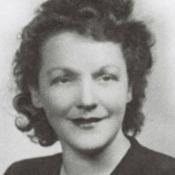
Another popular famine song is ‘Dan O’Hara’, whose chorus is a deceptively joyful and rhyming ‘A Cuisle Geal Mo Chroí / Won’t you buy a box from me’, where ‘Geal Mo Chroí’ is also a clichéd exclamation meaning ‘brightness of my heart’ or ‘my beautiful sweetheart’. The underlying grief is, once again, only perceived when the ‘sceal’ of the song is told: although the song was probably written by Delia Murphy from Claremorris in 1951, Dan O’Hara was a real tenant farmer from Clifden, Connemara, who was evicted from his farm and forced to emigrate to America as he couldn’t pay the rent. Unfortunately, no official figures are available for evictions before 1849, when 90,000 thousand of them were recorded by the constabulary, the figure rising to 100,000 in 1850.
http://rfcb.revues.org
Sung by Finbar Fureys, Rory Gallagher, Brendan Nolan, the Blackthorn
http://rfcb.revues.org
Sung by Finbar Fureys, Rory Gallagher, Brendan Nolan, the Blackthorn
It's here I am today God gave and took away
(Continues)
(Continues)
Contributed by dq82 2015/11/11 - 12:54
Johnny Seoighe
Nowhere is this criticism more bitterly expressed than in ‘Johnny Seoighe’, a satirical song in the refined allusive poetic tradition of Ireland, which can only be fully understood if one hears the accompanying scéal, the story traditionally told by the singer before singing: on Christmas Eve, the author (probably Tomás Shiúnach from Carna, in Connemara) and his family walked all the way to the workhouse only to find they couldn’t be accepted there for lack of space. They then asked the famine relief officer, Johnny Joyce (Seoighe, in Irish), for help and food, which was denied, and his wife and children subsequently died on the way back home from hunger and exhaustion. One can hardly imagine the grief that led to those subtly sarcastic and angry lines.
Here again, this song was long regarded as taboo, and kept well within the Carna community, until it started being sung in public in the... (Continues)
Here again, this song was long regarded as taboo, and kept well within the Carna community, until it started being sung in public in the... (Continues)
A Sheáin Uí Sheoighe tuig mo ghlór is mé ag tigheacht le dóchas faoi do dhéint
(Continues)
(Continues)
Contributed by dq82 2015/11/11 - 12:44
An Bhuatais (Aor an tSagairt)
Diarmaid Na Bolgaí Ó Sé
[ca 1825?]
An angry song in Irish, highly critical of the clergy itself, is ‘An Bhuatais’, the story of a Catholic priest who preferred to buy himself new boots rather than take care of his dying parishioners during Great Famine. Understandably, this song was also very rarely heard in Ireland before the second half of the 20th century.
Available on:
Áine UÍ CHEALLAIGH: Isir Dhá Chomhairle (Gael Linn, 1992)
-Three Shouts from a Hill (1999)
Slide- Harmonic Motion (2002)
Frank HARTE and Dónal LUNNY: The Hungry Voice: The Song Legacy of Ireland’s Great Hunger (Hummingbird, 2004)
Michelle Mulcahy: Suaimhneas (2012)
An angry song in Irish, highly critical of the clergy itself, is ‘An Bhuatais’, the story of a Catholic priest who preferred to buy himself new boots rather than take care of his dying parishioners during Great Famine. Understandably, this song was also very rarely heard in Ireland before the second half of the 20th century.
Available on:
Áine UÍ CHEALLAIGH: Isir Dhá Chomhairle (Gael Linn, 1992)
-Three Shouts from a Hill (1999)
Slide- Harmonic Motion (2002)
Frank HARTE and Dónal LUNNY: The Hungry Voice: The Song Legacy of Ireland’s Great Hunger (Hummingbird, 2004)
Michelle Mulcahy: Suaimhneas (2012)
Ailliliú, a dhuine a chruinnigh an t-ualach,
(Continues)
(Continues)
Contributed by dq82 2015/11/11 - 12:32
Song Itineraries:
Antiwar Anticlerical
Amhrán na bPrátaí Dubha
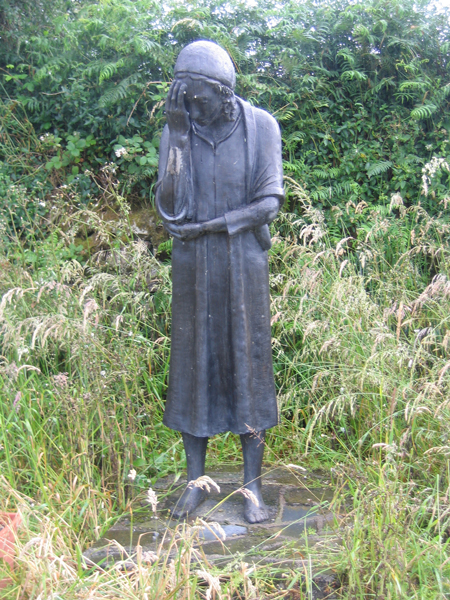
A traditional song, often being the work of an anonymous or forgotten author, can naturally be regarded as the representative expression of a community; and, being still sung by subsequent generations, will have successfully passed the test of time. Its continuous handling down from generation to generation ensures that the feeling is an enduring one. One song in Irish which has been carefully passed on since the mid-nineteenth century, is called ‘Amhrán na bPrátaí Dubha’ (‘The Song of the Black Potatoes’)11 and was probably composed during the Great Famine by Máire Ní Dhroma, who lived near Dungarvan.
11It features ten verses, and is mostly an appeal to mercy from God: ‘A Dhia na Glóire fóir agus freagair sinn’ (‘O God of glory protect us and answer us’), initially substantiating the belief expressed by many that the famine was a divine intervention, as openly stated by C.E. Trevelyan,... (Continues)
11It features ten verses, and is mostly an appeal to mercy from God: ‘A Dhia na Glóire fóir agus freagair sinn’ (‘O God of glory protect us and answer us’), initially substantiating the belief expressed by many that the famine was a divine intervention, as openly stated by C.E. Trevelyan,... (Continues)
Na prátaí dubha do dhein ár gcomharsana a scaipeadh orainn,
(Continues)
(Continues)
Contributed by DoNQuijote82 2015/11/11 - 12:03
Kyrie Eleison

[1989]
Parole e musica di Linard Bardill
Nell’album intitolato “Aufs Leben los”
Non so se sia integralmente una CCG ma qualche verso mi induce a crederlo, per esempio "Ich glaube nicht an die Macht / Dafür ist mir die Gewalt zu verhasst / Und die Gesichter von Soldaten zu kindlich"...
Vedete un po' voi germanofoni se il brano è degno di essere inserito.
Parole e musica di Linard Bardill
Nell’album intitolato “Aufs Leben los”
Non so se sia integralmente una CCG ma qualche verso mi induce a crederlo, per esempio "Ich glaube nicht an die Macht / Dafür ist mir die Gewalt zu verhasst / Und die Gesichter von Soldaten zu kindlich"...
Vedete un po' voi germanofoni se il brano è degno di essere inserito.
Ich glaube nicht an Gott
(Continues)
(Continues)
Contributed by Bernart Bartleby 2015/11/11 - 11:26
La chanzun s-charpada
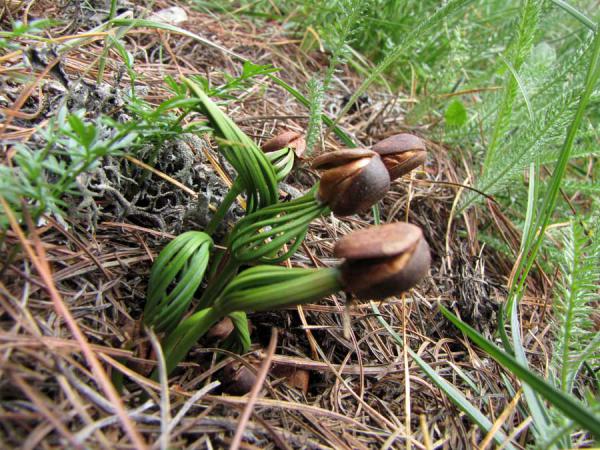
[1986]
Parole e musica di Linard Bardill
Nell’album intitolato “I nu passaran!”, con Shefali Banerjee e Pippo Pollina
Poi anche nella raccolta “Tamangur” del 1996
God da Tamangur (“La foresta là dietro” in romancio) è un bosco di pini cembri secolari, il più alto d’Europa (2.300 msl), nel Cantone dei Grigioni.
Ricordo che la presenza del pino cembro è un rilevatore importante dello stato di salute dell’ambiente montano, sia dal punto di vista vegetale che animale. Il cembro è stato infatti messo in pericolo fino a tempi recenti per via del suo legno molto ambìto e la sua diffusione naturale è molto delicata perchè molto legata alla presenza di popolazioni sane di alcuni uccelli nucifraghi, in particolare la Nocciolaia, un corvide simile alla più comune Ghiandaia, ma specializzato nel nutrirsi dei semi delle pigne, contribuendo così alla disseminazione di molte specie di aghifoglie e del cembro in particolare.
Parole e musica di Linard Bardill
Nell’album intitolato “I nu passaran!”, con Shefali Banerjee e Pippo Pollina
Poi anche nella raccolta “Tamangur” del 1996
God da Tamangur (“La foresta là dietro” in romancio) è un bosco di pini cembri secolari, il più alto d’Europa (2.300 msl), nel Cantone dei Grigioni.
Ricordo che la presenza del pino cembro è un rilevatore importante dello stato di salute dell’ambiente montano, sia dal punto di vista vegetale che animale. Il cembro è stato infatti messo in pericolo fino a tempi recenti per via del suo legno molto ambìto e la sua diffusione naturale è molto delicata perchè molto legata alla presenza di popolazioni sane di alcuni uccelli nucifraghi, in particolare la Nocciolaia, un corvide simile alla più comune Ghiandaia, ma specializzato nel nutrirsi dei semi delle pigne, contribuendo così alla disseminazione di molte specie di aghifoglie e del cembro in particolare.
Üna chanzun s-charpada
(Continues)
(Continues)
Contributed by Bernart Bartleby 2015/11/11 - 10:36
Song Itineraries:
War on Earth
The Things Men Do
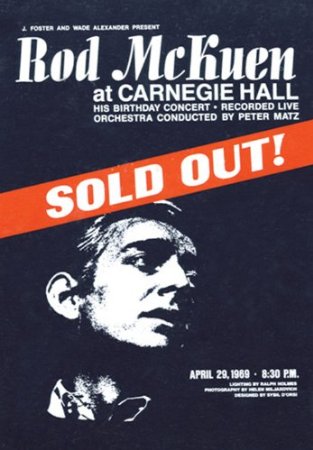
- from the album "Sold Out - Rod McKuen Live at Carnegie Hall", 1969
It makes me cry to see the things some men do to one another
(Continues)
(Continues)
2015/11/10 - 23:54
Soldiers Who Want To Be Heroes
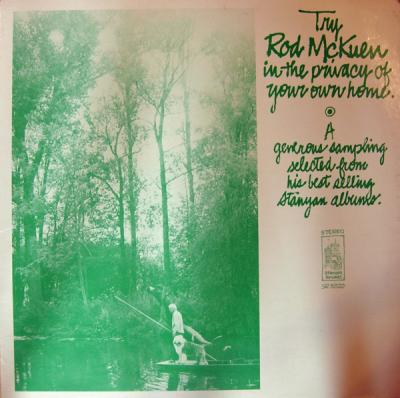
dall'album "Try Rod McKuen in the privacy of your own home" (1971).
Ispirata a Soldiers Who Wish to Be A Hero, canzone intonata dai soldati americani durante la prima guerra mondiale.
(B.B.)
Ispirata a Soldiers Who Wish to Be A Hero, canzone intonata dai soldati americani durante la prima guerra mondiale.
(B.B.)
Soldiers who wanna be heroes
(Continues)
(Continues)
2015/11/10 - 23:44
Song Itineraries:
Heroes
Clever Tom Clinch Going to Be Hanged
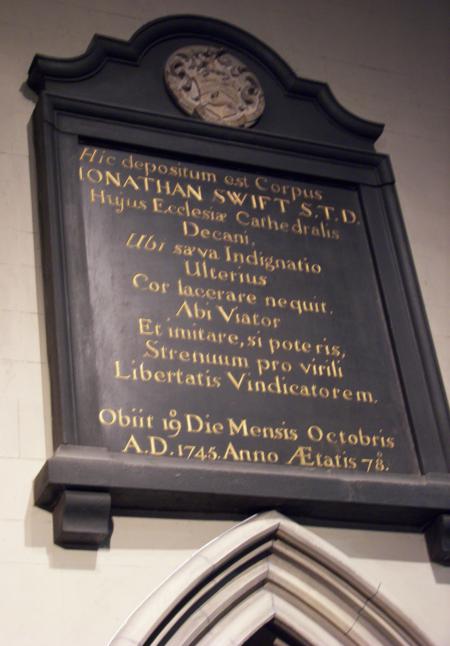
[1726]
A Broadside Ballad by Jonathan Swift [1667-1745]
Ballata da foglio volante di Jonathan Swift [1667-1745]
Originally to be sung to an unknown tune
Da cantarsi in origine su un'aria rimasta sconosciuta
Interpretata in tempi moderni da Paul Hillier e Andrew Lawrence-King nell'album Bitter Ballads - Ancient and modern Poetry sung to medieval and traditional Melodies
Recorded in modern times by Paul Hillier and Andrew Lawrence-King in the album Bitter Ballads - Ancient and modern Poetry sung to medieval and traditional Melodies
Tra le numerose cose per le quali il mondo dovrebbe essere grato a quell'acido, sarcastico, ipocondriaco e geniale irlandesaccio di Jonathan Swift, ci dovrebbe essere anche il fatto che, ai suoi tempi, era fra i non molti a non credere affatto alla pena di morte. La avversava ferocemente, e non soltanto in quanto inutile e inumana, ma anche e soprattutto perché,... (Continues)
A Broadside Ballad by Jonathan Swift [1667-1745]
Ballata da foglio volante di Jonathan Swift [1667-1745]
Originally to be sung to an unknown tune
Da cantarsi in origine su un'aria rimasta sconosciuta
Interpretata in tempi moderni da Paul Hillier e Andrew Lawrence-King nell'album Bitter Ballads - Ancient and modern Poetry sung to medieval and traditional Melodies
Recorded in modern times by Paul Hillier and Andrew Lawrence-King in the album Bitter Ballads - Ancient and modern Poetry sung to medieval and traditional Melodies
Tra le numerose cose per le quali il mondo dovrebbe essere grato a quell'acido, sarcastico, ipocondriaco e geniale irlandesaccio di Jonathan Swift, ci dovrebbe essere anche il fatto che, ai suoi tempi, era fra i non molti a non credere affatto alla pena di morte. La avversava ferocemente, e non soltanto in quanto inutile e inumana, ma anche e soprattutto perché,... (Continues)
As clever Tom Clinch, while the Rabble was bawling,
(Continues)
(Continues)
Contributed by Riccardo Venturi 2015/11/10 - 21:52
The Fine Old English Gentleman

[1841]
A satyrical broadside ballad by Charles Dickens
To the tune of The Fine Old English Gentleman
by Henry Russell (1812-1900)
First published on August 7, 1841 in the daily newspaper The Examiner
Ballata satirica da foglio volante di Charles Dickens
Sull'aria di The Fine Old Gentleman
di Henry Russell (1812-1900)
Pubblicata originariamente il 7 agosto 1841 sul quotidiano The Examiner
Charles Dickens autore di ballate? "Forse non tutti sanno che", si potrebbe parafrasare assieme a una nota rivista di enigmistica. Eppure, il ventitreenne Dickens, nel 1841, ne scrisse una e non di poco conto, suggerendo che "venisse recitata o cantata a tutti i ricevimenti conservatori". A dire il vero, Dickens ricorreva non di rado alla canzone, come si può vedere da tutte quelle che mise dentro il Circolo Pickwick; ma questa fu intesa come una vera e propria broadside ballad, stampata e venduta... (Continues)
A satyrical broadside ballad by Charles Dickens
To the tune of The Fine Old English Gentleman
by Henry Russell (1812-1900)
First published on August 7, 1841 in the daily newspaper The Examiner
Ballata satirica da foglio volante di Charles Dickens
Sull'aria di The Fine Old Gentleman
di Henry Russell (1812-1900)
Pubblicata originariamente il 7 agosto 1841 sul quotidiano The Examiner
Charles Dickens autore di ballate? "Forse non tutti sanno che", si potrebbe parafrasare assieme a una nota rivista di enigmistica. Eppure, il ventitreenne Dickens, nel 1841, ne scrisse una e non di poco conto, suggerendo che "venisse recitata o cantata a tutti i ricevimenti conservatori". A dire il vero, Dickens ricorreva non di rado alla canzone, come si può vedere da tutte quelle che mise dentro il Circolo Pickwick; ma questa fu intesa come una vera e propria broadside ballad, stampata e venduta... (Continues)
THE FINE OLD ENGLISH GENTLEMAN
(Continues)
(Continues)
Contributed by Riccardo Venturi 2015/11/10 - 17:45
Tuez les hérétiques, leurs femmes et leurs enfants !

Tuez les hérétiques, leurs femmes et leurs enfants !
Chanson française – Tuez les hérétiques, leurs femmes et leurs enfants ! – Marco Valdo M.I. – 2015
Ulenspiegel le Gueux – 11
Opéra-récit en multiples épisodes, tiré du roman de Charles De Coster : La Légende et les aventures héroïques, joyeuses et glorieuses d’Ulenspiegel et de Lamme Goedzak au Pays de Flandres et ailleurs (1867).
(Ulenspiegel – I, LII)
Cette numérotation particulière : (Ulenspiegel – I, I), signifie très exactement ceci :
Ulenspiegel : La Légende et les aventures héroïques, joyeuses et glorieuses d’Ulenspiegel et de Lamme Goedzak au Pays de Flandres et ailleurs, dans le texte de l’édition de 1867.
Le premier chiffre romain correspond au numéro du Livre – le roman comporte 5 livres et le deuxième chiffre romain renvoie au chapitre d’où a été tirée la chanson. Ainsi, on peut – si le cœur vous en dit – retrouver... (Continues)
Chanson française – Tuez les hérétiques, leurs femmes et leurs enfants ! – Marco Valdo M.I. – 2015
Ulenspiegel le Gueux – 11
Opéra-récit en multiples épisodes, tiré du roman de Charles De Coster : La Légende et les aventures héroïques, joyeuses et glorieuses d’Ulenspiegel et de Lamme Goedzak au Pays de Flandres et ailleurs (1867).
(Ulenspiegel – I, LII)
Cette numérotation particulière : (Ulenspiegel – I, I), signifie très exactement ceci :
Ulenspiegel : La Légende et les aventures héroïques, joyeuses et glorieuses d’Ulenspiegel et de Lamme Goedzak au Pays de Flandres et ailleurs, dans le texte de l’édition de 1867.
Le premier chiffre romain correspond au numéro du Livre – le roman comporte 5 livres et le deuxième chiffre romain renvoie au chapitre d’où a été tirée la chanson. Ainsi, on peut – si le cœur vous en dit – retrouver... (Continues)
Monsieur et père, écrivait Philippe,
(Continues)
(Continues)
Contributed by Marco Valdo M.I. 2015/11/10 - 16:25
An den Frieden

[1760]
Versi di Karl Wilhelm Ramler (1725-1798), poeta tedesco
Musica di Linard Bardill, nell’album intitolato“Strampedemi, Lieder gegen den Krieg”, 1991.
Versi contro la guerra (quella cosiddetta dei Sette Anni?) composti da un poeta altrimenti patriottico e guerresco…
Versi di Karl Wilhelm Ramler (1725-1798), poeta tedesco
Musica di Linard Bardill, nell’album intitolato“Strampedemi, Lieder gegen den Krieg”, 1991.
Versi contro la guerra (quella cosiddetta dei Sette Anni?) composti da un poeta altrimenti patriottico e guerresco…
Wo bist du hingeflohn, geliebter Friede?
(Continues)
(Continues)
Contributed by Bernart Bartleby 2015/11/10 - 12:58
Una donna
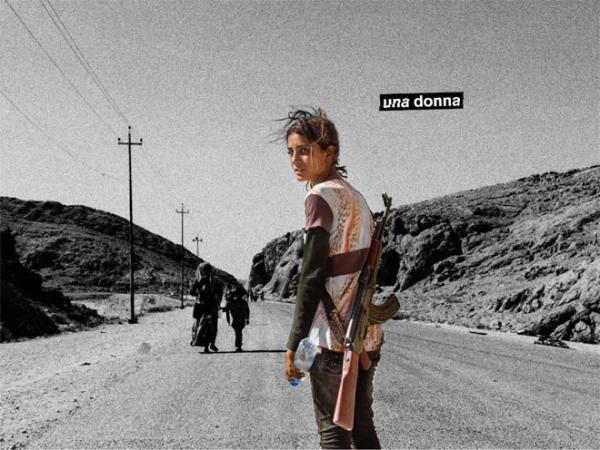
2015
Il teatro degli orrori
Non manca l’attualità. Il brano Una donna recita: “Ma guarda, li vedi, amico mio sono profughi, scappano da morte certa e noi qui a farci i cazzi nostri, e tu, donna la bellezza del tuo sorriso parla del tuo coraggio la sua dolcezza è una bandiera”. Nel libretto è l’unico testo che manca, al suo posto c’è una foto. “Ho visto la foto di una ragazza e sono risalito alla fonte, l’abbiamo comprata da un’agenzia irachena. È una ragazza yazida di quattrodici anni in fuga dall’Is con quello che resta della sua famiglia, indossa un kalashnikov che le ha regalato l’Unità di Protezione del popolo kurdo per proteggerla. Lo scatto la coglie mentre si volta, coglie il suo sguardo straordinario: in questa foto c’è la contemporaneità. Non parla solo del dramma dei profughi, di questa incredibile migrazione. Parla anche di noi, dei nostri egoismi, della nostra indifferenza. Per questo ho messo solo l’immagine: il testo è quella ragazza”.
Il teatro degli orrori
Non manca l’attualità. Il brano Una donna recita: “Ma guarda, li vedi, amico mio sono profughi, scappano da morte certa e noi qui a farci i cazzi nostri, e tu, donna la bellezza del tuo sorriso parla del tuo coraggio la sua dolcezza è una bandiera”. Nel libretto è l’unico testo che manca, al suo posto c’è una foto. “Ho visto la foto di una ragazza e sono risalito alla fonte, l’abbiamo comprata da un’agenzia irachena. È una ragazza yazida di quattrodici anni in fuga dall’Is con quello che resta della sua famiglia, indossa un kalashnikov che le ha regalato l’Unità di Protezione del popolo kurdo per proteggerla. Lo scatto la coglie mentre si volta, coglie il suo sguardo straordinario: in questa foto c’è la contemporaneità. Non parla solo del dramma dei profughi, di questa incredibile migrazione. Parla anche di noi, dei nostri egoismi, della nostra indifferenza. Per questo ho messo solo l’immagine: il testo è quella ragazza”.
Una donna una ragazza pronta a dare tutto ciò che ha senza riserve In cambio niente
(Continues)
(Continues)
Contributed by dq82 2015/11/10 - 12:03
Song Itineraries:
From Kurdistan
Lavorare stanca
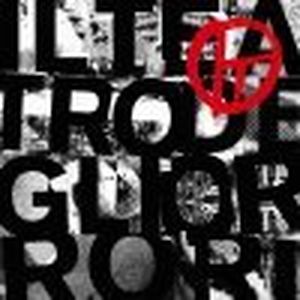
2015
Il teatro degli orrori
Il teatro degli orrori
Sarebbe fantastico
(Continues)
(Continues)
Contributed by dq82 2015/11/10 - 11:57
Song Itineraries:
The War of Labour: Emigration, Immigration, Exploitation, Slavery
Chor der Kriegerwaisen
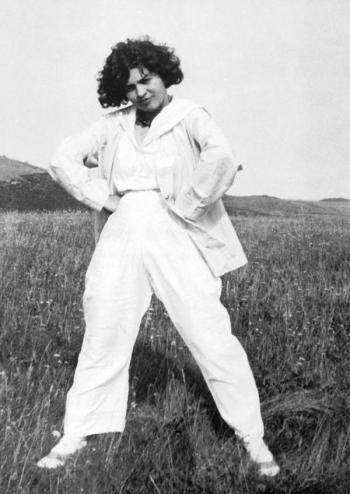
[1931]
Versi di Mascha Kaléko (nata Golda Malka Aufen, 1907-1975), poetessa ebrea polacca, originaria della Galizia austro-ungarica.
Una poesia messa in musica da artisti come Konstantin Wecker (“Wecker”, 1982) e Linard Bardill (“Strampedemi, Lieder gegen den Krieg”, 1991)
Testo trovato su Simplicissimus
Anche la famiglia di Golda Malka Aufen, come centinaia di migliaia di galiziani, abbandonò il paese negli anni a ridosso della Grande Guerra, all’epoca della grande crisi economica che attanagliò la regione. Si stabilirono a Berlino, dove nel 1928 la giovane Mascha sposò l’insegnante Saul Aaron Kaléko.
Mascha Kaléko cominciò a pubblicare poesie fin dal 1929 e venne subito apprezzata da poeti ed intellettuali come Erich Kästner e Kurt Tucholsky.
Le sue prime due raccolte, “Lyrisches Stenogrammheft” del 1933 e “Das kleine Lesebuch für Grosse” del 1935, incontrarono immediatamente la... (Continues)
Versi di Mascha Kaléko (nata Golda Malka Aufen, 1907-1975), poetessa ebrea polacca, originaria della Galizia austro-ungarica.
Una poesia messa in musica da artisti come Konstantin Wecker (“Wecker”, 1982) e Linard Bardill (“Strampedemi, Lieder gegen den Krieg”, 1991)
Testo trovato su Simplicissimus
Anche la famiglia di Golda Malka Aufen, come centinaia di migliaia di galiziani, abbandonò il paese negli anni a ridosso della Grande Guerra, all’epoca della grande crisi economica che attanagliò la regione. Si stabilirono a Berlino, dove nel 1928 la giovane Mascha sposò l’insegnante Saul Aaron Kaléko.
Mascha Kaléko cominciò a pubblicare poesie fin dal 1929 e venne subito apprezzata da poeti ed intellettuali come Erich Kästner e Kurt Tucholsky.
Le sue prime due raccolte, “Lyrisches Stenogrammheft” del 1933 e “Das kleine Lesebuch für Grosse” del 1935, incontrarono immediatamente la... (Continues)
Wir sind die Kinder der “Eisernen Zeit”,
(Continues)
(Continues)
Contributed by Bernart Bartleby 2015/11/10 - 11:38
Daughterson

[2010]
Parole di Joe Stevens, singer songwriter transgender
Musica dei Coyote Grace (Joe Stevens, Ingrid Elizabeth e Michael Connolly), trio che fa musica acustica di genere, per così dire, “Alternative-Americana”
Nell’album intitolato “Buck Naked”
Parole di Joe Stevens, singer songwriter transgender
Musica dei Coyote Grace (Joe Stevens, Ingrid Elizabeth e Michael Connolly), trio che fa musica acustica di genere, per così dire, “Alternative-Americana”
Nell’album intitolato “Buck Naked”
My haircut don't look right
(Continues)
(Continues)
Contributed by Bernart Bartleby 2015/11/9 - 16:28
Song Itineraries:
LGBTQIA+ community and homophobia: love against violence and prejudice
Girls Like Me (Summertime)
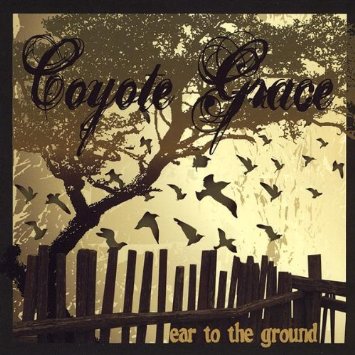
[2009]
Scritta da Ingrid Elizabeth
Musica dei Coyote Grace (Joe Stevens, Ingrid Elizabeth e Michael Connolly), trio che fa musica acustica di genere, per così dire, “Alternative-Americana”
Nell’album intitolato “Ear To The Ground”
Un gruppo molto attento ai temi propri della comunità LGBT.
Scritta da Ingrid Elizabeth
Musica dei Coyote Grace (Joe Stevens, Ingrid Elizabeth e Michael Connolly), trio che fa musica acustica di genere, per così dire, “Alternative-Americana”
Nell’album intitolato “Ear To The Ground”
Un gruppo molto attento ai temi propri della comunità LGBT.
I was a watercolor girl in a tintype town
(Continues)
(Continues)
Contributed by Bernart Bartleby 2015/11/9 - 11:49
Song Itineraries:
LGBTQIA+ community and homophobia: love against violence and prejudice
Lough Sheelin Side
Anonymous
A song has been written about Lough Sheelin, called Lough Sheelin’ side and recounts the tale of an eviction. It is not known for certain whether the song is of Cavan, Meath or Westmeath origin as the lake borders all three counties, and there were extensive clearances of tenants in the past famine years in both Cavan and Westmeath. However, there was a mass eviction one cold February night at a place called Tonagh in the late 1840s. Then Tonagh was a thriving village located near Ross on the Meath shores of the lake and not far from Mountnugent. Some 700 poor souls were thrown from their homes. The song probably relates to this eviction scene. In an article in the Heart of Breffni (1984) Seamus P O’ Mordha cites the first printed source of the song from the Anglo Celt. The editorial note that appears under the title of the song states “The Following Song was popular many years ago. Ed. A.C.”... (Continues)
Farewell! my country, a long farewell,
(Continues)
(Continues)
Contributed by Donquijote82 2015/11/9 - 11:22
Young James Dean

[2003]
Parole e musica di Tylan "Ty" Greenstein
Nell’album intitolato “Little Star”, pubblicato nel 2005
“I guess this song is sort of my ode to tomboys who remained tomboys and perhaps became even bigger tomboys as they got older, such as myself. So this is called Young James Dean.” (Ty Greenstein, come riportato in “The Queer Sounds of Justice”, di S.M. Gray, tesi presso il Wellesley College, scuola superiore artistica femminile di Wellesley, Massachusets, USA)
Una canzone dedicata alle donne omosessuali, e in particolare le “tomboys” (o “butches”), traducibile come “maschiacce”, che hanno in James Dean - e soprattutto quello di “Rebel Without A Cause” (“Gioventù bruciata”, di Nicholas Ray, 1955) - una delle loro icone.
Ty Greenstein scrisse questo brano dopo aver letto “The Last Time I Wore A Dress” (1997) di Daphne Scholinski, nativa di Chicago (oggi molto noto artista transgender... (Continues)
Parole e musica di Tylan "Ty" Greenstein
Nell’album intitolato “Little Star”, pubblicato nel 2005
“I guess this song is sort of my ode to tomboys who remained tomboys and perhaps became even bigger tomboys as they got older, such as myself. So this is called Young James Dean.” (Ty Greenstein, come riportato in “The Queer Sounds of Justice”, di S.M. Gray, tesi presso il Wellesley College, scuola superiore artistica femminile di Wellesley, Massachusets, USA)
Una canzone dedicata alle donne omosessuali, e in particolare le “tomboys” (o “butches”), traducibile come “maschiacce”, che hanno in James Dean - e soprattutto quello di “Rebel Without A Cause” (“Gioventù bruciata”, di Nicholas Ray, 1955) - una delle loro icone.
Ty Greenstein scrisse questo brano dopo aver letto “The Last Time I Wore A Dress” (1997) di Daphne Scholinski, nativa di Chicago (oggi molto noto artista transgender... (Continues)
In the back of a camouflage truck
(Continues)
(Continues)
Contributed by Bernart Bartleby 2015/11/9 - 11:03
Song Itineraries:
LGBTQIA+ community and homophobia: love against violence and prejudice
Verso il sole
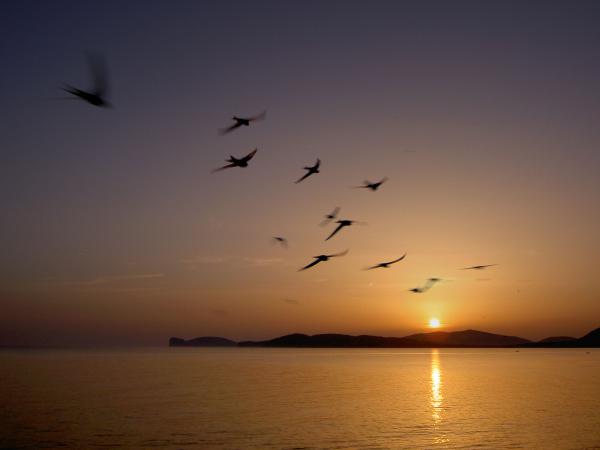
(2007)
Album: "Sponda sud"
Una bellissima canzone di libertà, una metafora di tutte le migrazioni verso nord nel nostro regno occidentale. Con la speranza di fare ritorno un giorno, come le rondini... verso il sole, al di là di tutte le frontiere che non dovrebbero esistere per gli umani come non esistono per le rondini.
Album: "Sponda sud"
Una bellissima canzone di libertà, una metafora di tutte le migrazioni verso nord nel nostro regno occidentale. Con la speranza di fare ritorno un giorno, come le rondini... verso il sole, al di là di tutte le frontiere che non dovrebbero esistere per gli umani come non esistono per le rondini.
Quando vola sui deserti
(Continues)
(Continues)
Contributed by CCG Staff 2015/11/8 - 23:38
Song Itineraries:
Free Birds, The War of Labour: Emigration, Immigration, Exploitation, Slavery
Il mondo corre
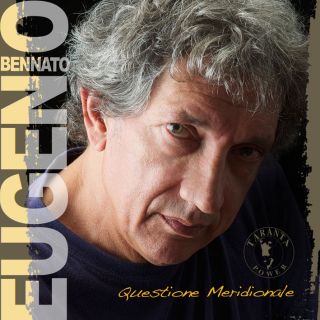
[2011]
Album: Questione Meridionale
Album: Questione Meridionale
Il mondo corre, corre, corre forte come il vento
(Continues)
(Continues)
Contributed by dq82 2015/11/8 - 15:36
Lamentarsi come ipotesi
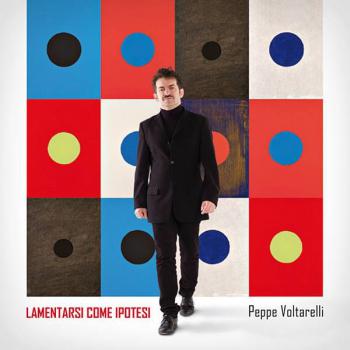
[2014]
Testo e musica di Peppe Voltarelli
Lyrics and music by Peppe Voltarelli
Album : Lamentarsi come ipotesi
Testo e musica di Peppe Voltarelli
Lyrics and music by Peppe Voltarelli
Album : Lamentarsi come ipotesi
Il lamento è un arte nobile
(Continues)
(Continues)
Contributed by adriana 2015/11/8 - 09:17
Buđav 'lebac
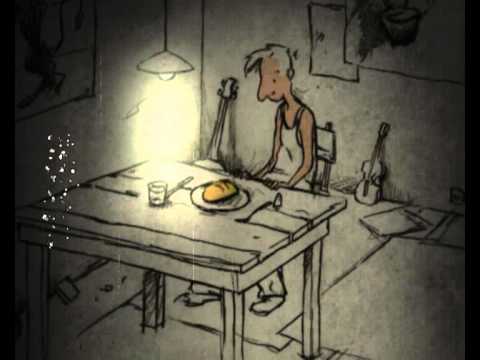
[2009]
Testo e musica: S.A.R.S.
Lyrics and music: S.A.R.S.
Nell'anno del Signore 2009, dopo inizi un po stentati e varie uscite dal gruppo, i S.A.R.S., band serba la cui sigla è piacevolmente ambigua tra la "polmonite atipica cinese" e una frase che in serbo significa "Il braccio recentemente amputato a Joe Satriani", decidono di stracatafottersene del "mercato" (in serbo: trg, il mercato con meno vocali del mondo) e si affidano interamente a YouTube con un brano e con un video che, in breve, sfondano. Il video e la canzone diventano "virali" (si cie così, cosa che sta ottimamente con la SARS...) e, da un giorno all'altro, la band diventa famosissima in tutta la ex Jugoslavia. Forse non poteva essere altrimenti, dato il particolare ancorché semplicissimo argomento del brano: la vita di merda di un anziano, di un pensionato qualsiasi senza più pensione e senza un soldo. La crisi, insomma.... (Continues)
Testo e musica: S.A.R.S.
Lyrics and music: S.A.R.S.
Nell'anno del Signore 2009, dopo inizi un po stentati e varie uscite dal gruppo, i S.A.R.S., band serba la cui sigla è piacevolmente ambigua tra la "polmonite atipica cinese" e una frase che in serbo significa "Il braccio recentemente amputato a Joe Satriani", decidono di stracatafottersene del "mercato" (in serbo: trg, il mercato con meno vocali del mondo) e si affidano interamente a YouTube con un brano e con un video che, in breve, sfondano. Il video e la canzone diventano "virali" (si cie così, cosa che sta ottimamente con la SARS...) e, da un giorno all'altro, la band diventa famosissima in tutta la ex Jugoslavia. Forse non poteva essere altrimenti, dato il particolare ancorché semplicissimo argomento del brano: la vita di merda di un anziano, di un pensionato qualsiasi senza più pensione e senza un soldo. La crisi, insomma.... (Continues)
Čik pogodi šta imam za večeru,
(Continues)
(Continues)
Contributed by Riccardo Venturi 2015/11/7 - 20:53
Mon père et ma mère

2015
“Mon père et ma mère”, il nuovo video del brano di Eugenio Bennato, è la storia di un incontro tra il musicista e Enric Parfait, un giovane africano del Camerun che, con pochi versi scritti di suo pugno, gli da l’input per un brano carico di empatia e fratellanza.
Enrico Perfetto, come tanti giovani dell’Africa subsahariana, decide di partire e compiere l’impervia traversata del deserto verso il miraggio dello splendente Mediterraneo. Bennato lo incontra a Tangeri: Enric si trova ad ascoltare la chitarra del cantautore partenopeo e, con tutti i pensieri che deve avere nella testa, non rinuncia ad avvicinarsi al musicista e a porgergli un foglietto con quattro versi scritti a mano: “Mio padre e mia madre si son conosciuti in galera, in eredità mi hanno lasciato la miseria). Per “Mon père et ma mère” Bennato si avvale della collaborazione di musicisti come Stefano “Mujura”, Ezio Lambiase, Sonia Totaro e Chiara Carnevale. Nel brano c’è anche la voce esordiente della figlia del cantautore, Eugenia.
“Mon père et ma mère”, il nuovo video del brano di Eugenio Bennato, è la storia di un incontro tra il musicista e Enric Parfait, un giovane africano del Camerun che, con pochi versi scritti di suo pugno, gli da l’input per un brano carico di empatia e fratellanza.
Enrico Perfetto, come tanti giovani dell’Africa subsahariana, decide di partire e compiere l’impervia traversata del deserto verso il miraggio dello splendente Mediterraneo. Bennato lo incontra a Tangeri: Enric si trova ad ascoltare la chitarra del cantautore partenopeo e, con tutti i pensieri che deve avere nella testa, non rinuncia ad avvicinarsi al musicista e a porgergli un foglietto con quattro versi scritti a mano: “Mio padre e mia madre si son conosciuti in galera, in eredità mi hanno lasciato la miseria). Per “Mon père et ma mère” Bennato si avvale della collaborazione di musicisti come Stefano “Mujura”, Ezio Lambiase, Sonia Totaro e Chiara Carnevale. Nel brano c’è anche la voce esordiente della figlia del cantautore, Eugenia.
Mon père et ma mère
(Continues)
(Continues)
Contributed by dq82 2015/11/7 - 16:27
Song Itineraries:
The War of Labour: Emigration, Immigration, Exploitation, Slavery
Come faremo girare la Francia
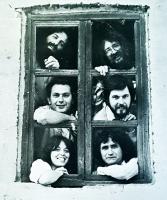
O cielo cielo / come faremo a girare la Francia
Versione della Val Vigezzo cantata da Lorenzo Valera, Valentina Volonté e Laila Sage, dell'Associazione PassAmontagne
Il tema di questo canto - la diserzione - si intreccia con quello dell'emigrazione verso la Francia, fenomeno molto diffuso tra gli abitanti delle vallate alpine. Il canto sembra essere originario della bassa val Chisone e il riferimento alla ferma di leva di 30 mesi, permette di datarlo tra la fine dell'800 e l'inizio del 900. C'è anche chi attribuisce questa canzone al Trentino Alto Adige ma, come sempre, il canto popolare non ha padroni e ne troviamo versioni raccolte in Val Vigezzo e nella bergamasca - con una significativa variante di testo in cui il disertore viene arrestato.
Dal sito Viaggiatori ignoranti
Dal sito Viaggiatori ignoranti
Versione della Val Vigezzo cantata da Lorenzo Valera, Valentina Volonté e Laila Sage, dell'Associazione PassAmontagne
(Continues)
Contributed by adriana 2015/11/7 - 09:53
La Cigogne et la Prostituée

Sul quadro ci sono le gru mica le cicogne
Ornithologo
Ornithologo
krzyś 2015/11/6 - 22:42
Anita e Pepin
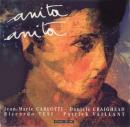
La foto qui sopra riportata di "Anita Anita" si riferisce alla prima edizione in cd del 1994, a cura dell'etichetta francese SILEX, il disco in vinile con copertina differente era uscito originariamente nel 1988 (anno di registrazione) per l'italiana ROBI DROLI. Le registrazioni erano avvenute a Pistoia nel marzo di quell'anno.
Flavio Poltronieri 2015/11/6 - 19:50
Se solo mi guardassi

In ricordo di Thomas Sankara
Il discorso sul debito dei paesi del terzo mondo di Thomas Sankara alla venticinquesima conferenza dell'OUA (Organizzazione per l'unità Africana) - Addis Abeba 29 Luglio 1987.
Il discorso sul debito dei paesi del terzo mondo di Thomas Sankara alla venticinquesima conferenza dell'OUA (Organizzazione per l'unità Africana) - Addis Abeba 29 Luglio 1987.
Krzysiek "Cern-Enko" Wrona 2015/11/6 - 17:09
×
![]()



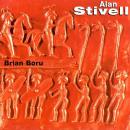

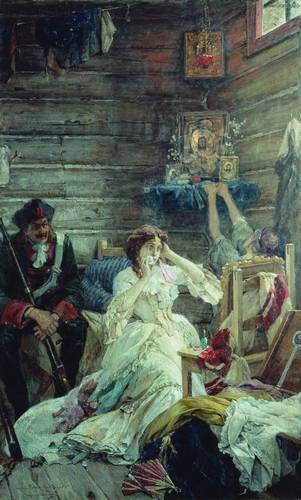
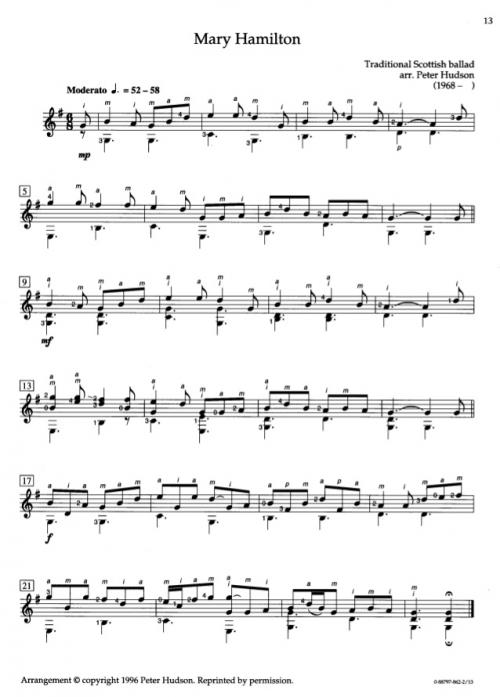
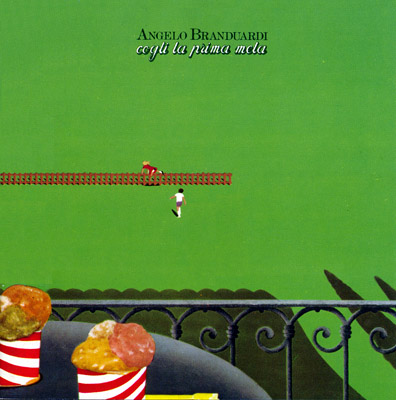


Chanson française – La Religieuse – Georges Brassens – 1969
Paroles et musique : Georges Brassens
Mais que donc viendrait faire une religieuse dans les Chansons contre la Guerre ?
Y être ou ne pas y être ? Telle est la question. Tel est le dilemme… D’abord, ce n’est pas n’importe quelle religieuse. C’est la sœur de Fernande.
Voyez-vous ça, la sœur de Fernande. D’accord. Mais encore ?
Eh bien, Lucien l’âne mon ami, si la brave Margot (faudra aussi la présenter aux CCG, qui font semblant de l’ignorer) découvrait son corsage et inspirait ainsi tous les gars du village, cette religieuse incarne à elle seule tous les fantasmes des enfants de chœurs, des ecclésiastiques et même, qui lui résisterait ?, du Christ et des auditeurs de la chanson. C’est une Mélanie à rebours ; elle incendie les cierges sans même les toucher.
Et bien entendu aussi, dit Lucien l’âne en brayant... (Continues)